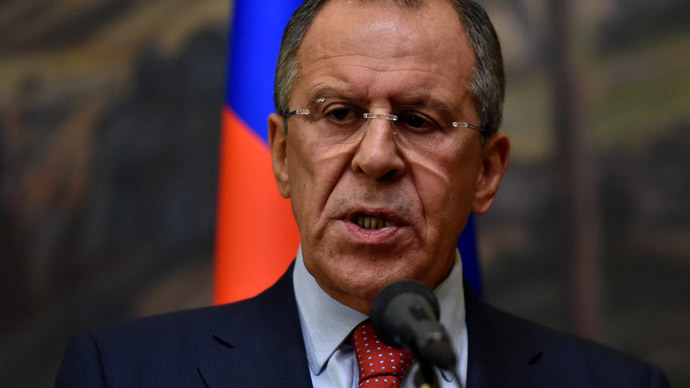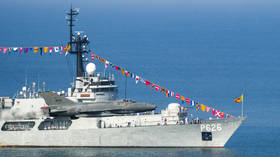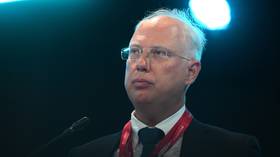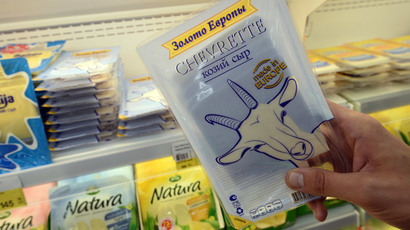EU risks €40bn hemorrhage from Russia sanctions in 2014 – Foreign Minister

Economies across the European Union will lose about €40 billion this year, with the damage estimated to widen to €50 billion in 2015, Russia’s Foreign Minister Sergey Lavrov said, citing figures from the EU itself.
There are so far no exact figures for the damage incurred, but the European Union has made some preliminary estimates and said the damage could be as high as €40 billion this year, Sergey Lavrov said.
The Foreign Minister was addressing a group of business leaders at the Association of European Businesses (AEB), a Moscow-based lobby group that represents the interests of more than 600 European companies in Russia.
Lavrov called for sanctions against Russia that target state-owned companies as well as individuals, to be lifted. Then Russia would cancel the country’s one-year food ban against the EU, a penalty which could cost the EU $6.6 billion in exports.
“Decisions in Brussels, in particular, to impose sanctions against Russia, were made under strong American pressure,” Lavrov said.
Russia announced the food ban in August, but only after the West had introduced several rounds of sanctions over the country’s perceived role in the Ukraine crisis.
According to Lavrov, sanctions are a “one-way tool” and that Russia never wanted to join the tit-for-tat political game - but was forced to.
Trade, South Stream
Despite the diplomatic standoff, Russia is still interested in deepening integration, and creating a free trade zone with the EU. Trade between Russia and the EU is $440 billion and thousands of companies do regular day-to-day business in Russia.
In September, the AEB penned a letter to the EU and Russian governments asking to keep business relations between the two groups functional.
Lavrov hopes that the EU will drop their political rhetoric and focus on business.
One of the main points of cooperation Lavrov hopes will remain intact is the South Stream gas pipeline project that will deliver gas to south and central Europe without crossing through Ukraine, which has proved an unreliable transit partner.
The pipeline will deliver about 64 billion cubic meters to Europe, Russia’s biggest gas client.
“This project will minimize the risks to supplies of Russian gas for EU consumers, which is fully consistent with Brussels’ goal to ensure energy security in Europe,” Lavrov said.
Since the Ukraine crisis began to unfold and splinter relations between Brussels and Moscow, the project has faced many roadblocks, from countries being forced to halt construction, to the EU raising questions on whether it violates anti-monopoly laws.














